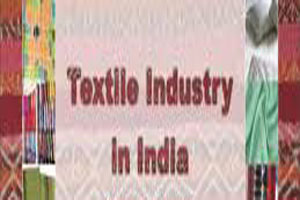
India textiles looking out for duty-free access into Germany, UK
YarnsandFibers News Bureau 2014-02-03 09:30:00 – New DelhiIndia’s largest market for textiles being European Union, India is on the lookout for duty-free access for its garments and some other textiles items into the European Union for which the Textiles Ministry is in talks with Germany and the UK. The negotiating is going on at a Government-to-Government level. Textiles Minister KS Rao said that they want the EU countries to give them the same dispensation as Pakistan and Bangladesh.
It is important to ensure a level-playing field for Indian exporters. The Ministry has also asked the Finance Ministry for an interest rate subvention (lower interest rate) of 3-4 per cent for textile exporters. This will help them compete in the export market better and exports would go up, Rao said.
The Minister said that the Textile Ministry would set an ambitious export target of $60 billion for the textiles sector for the coming fiscal, which is almost 50 per cent higher than exports of $41 billion estimated this year.
But the fact that the country has graduated out of the Generalised System of Preferences (GSP) scheme offered by the EU under which it was getting preferential access to the European market (by paying lower import duties) could make the going tough. EU is India’s largest market for textiles.
While Bangladesh and Sri Lanka have been taking advantage of a duty-free regime for their textile items for some time, Pakistan too has been made eligible for zero-duty access since January this year under the EU’s GSP Plus scheme. Rao said that Indian garments and textiles were getting affected because of the double blow. In a market like Germany, while Pakistan does not have to pay any duties for readymade garments, Indian exporters are subject to a duty of 9.36 per cent, the Minister said.
Under the GSP Plus Scheme, Pakistan is allowed to export textile goods to the 27-member EU duty free till 2017.
As per estimates made by the Pakistani Government, the textile industry would earn additional profits of $930 million per year because of the scheme.
Rao pointed out that EU imports 95 per cent of its textile requirements. Pakistan and Bangladesh has been given concessions on political reasons. Hence India is requesting the same.
With Chinese textiles becoming uncompetitive due to rising labour cost and Bangladeshi textiles facing quality issues, India is hopeful that several European countries will take the India's request for duty-free access seriously.
Market Intelligence
Ask for free sample Report

experience
Customer Base
dedicated team
Countries Served Worldwide









